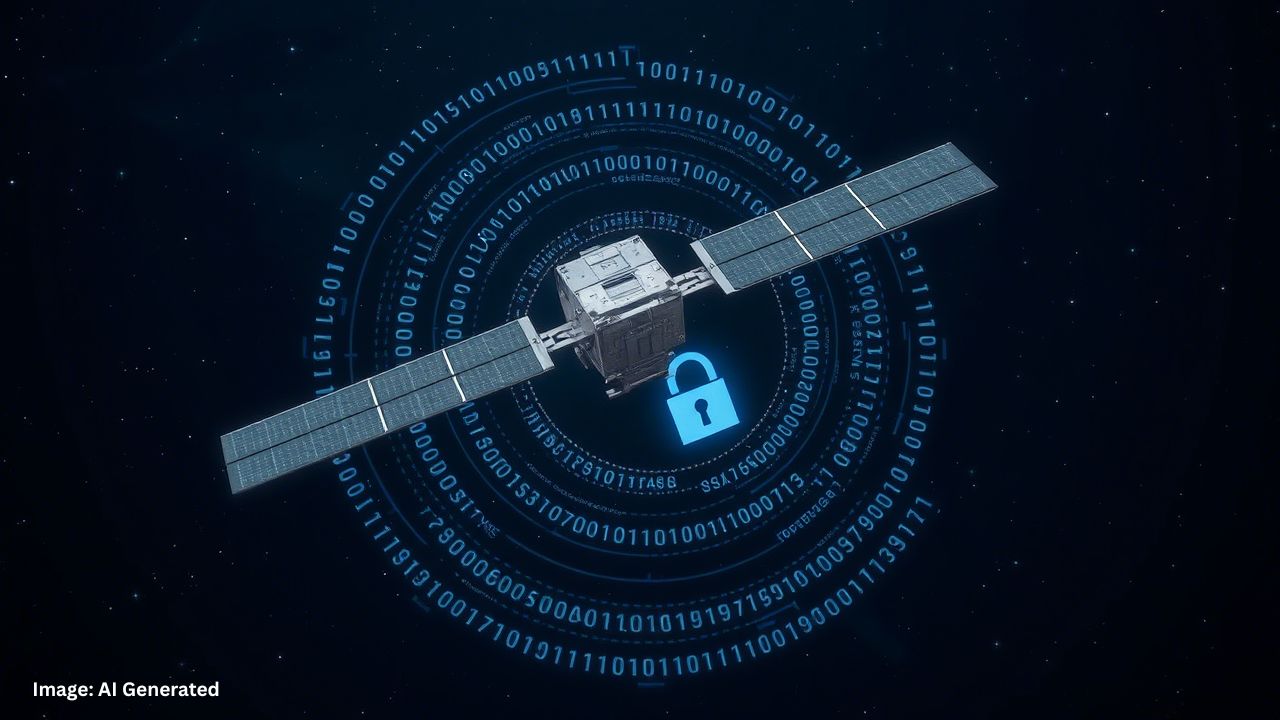In 2025, how hackers are weaponizing space satellites has become a critical concern for governments, businesses, and civilians alike. Satellites control many aspects of modern life, including GPS navigation, communications, weather forecasting, and national defense. But as our reliance on satellites grows, hackers and hostile state actors are finding new ways to exploit weaknesses in these space-based systems, threatening to disrupt services and even weaponize satellites themselves.
Understanding this emerging cyber frontier is crucial—not only for cybersecurity professionals but for anyone interested in how space technology affects our daily lives. This article explains the nature of satellite cyber threats, the potential risks, ongoing defenses, and what the future holds.
Quick Summary
- Indian Space Research Organisation (ISRO) reports over 100 daily cyber-attacks targeting its satellites and ground infrastructure.
- The 2022 Viasat cyberattack disrupted satellite internet services across Europe and North America, affecting thousands of users.
- AI-driven malware, like the “OrbitShade” strain, can stealthily infiltrate and control satellite systems.
- Vulnerabilities include signal jamming, spoofing, malware infections, and supply chain compromises.
- Agencies like the U.S. Defense Innovation Unit use AI-powered defenses and quantum encryption to protect satellites.
- For more official guidance, see the National Institute of Standards and Technology (NIST).
A Brief History of Satellite Cyberattacks
Satellite hacking is not entirely new. In 1999, researchers demonstrated the possibility of hacking GPS satellites to manipulate location data. Over the years, attacks have become more sophisticated. For instance:
- 2007: The U.S. government reported attempted intrusions into military satellite systems.
- 2008: NASA satellites briefly came under control of unknown hackers.
- 2022: The Viasat attack showed how large-scale satellite internet could be taken offline.
These incidents highlight an escalating threat that requires urgent attention.
Why Are Satellites Vulnerable?
Satellites are uniquely vulnerable due to their complex infrastructure. They rely on software and hardware developed by multiple vendors worldwide, often with varying security standards. Once in orbit, satellites can be difficult to patch or repair, and their communication signals can be intercepted or jammed.
Ground stations, the terrestrial facilities controlling satellites, can be more accessible to hackers. If a ground station is compromised, attackers may gain control of the satellite itself.
Hackers Are Weaponizing Space Satellites: How Hackers Weaponize Satellites?
Signal Jamming and Spoofing
Signal jamming involves overwhelming satellite signals with noise, causing communication blackouts. Spoofing is tricking a receiver by sending fake signals — a threat particularly concerning for GPS satellites. For example, spoofing can cause a ship to believe it’s in a different location, potentially causing accidents.
Malware and Remote Takeover
Satellites run on specialized operating systems that hackers can exploit. Malware like “OrbitShade” can infiltrate satellite systems and lie dormant until activated. This malware can disrupt satellite functions, disable communications, or even cause satellites to behave unpredictably.
Supply Chain Attacks
Parts of satellites often come from multiple suppliers. If a single component is compromised — either with hardware tampering or embedded malicious code — attackers gain a backdoor into the satellite system.
The Impact of Satellite Cyberattacks
The consequences of weaponizing satellites are far-reaching:
- Aviation: GPS disruptions can affect flight navigation and safety.
- Finance: Satellite communication failures can disrupt global financial transactions.
- Military: Satellite jamming or takeovers can blind surveillance and communication systems during conflicts.
- Everyday Life: Loss of internet access or navigation services affects millions.
A single satellite attack could cascade into widespread economic and social disruption.
Hackers Are Weaponizing Space Satellites: How Governments and Industry Are Responding?
AI-Powered Cyber Defense
The U.S. Defense Innovation Unit and other agencies are deploying AI tools that monitor satellite systems in real time, detecting anomalies and responding faster than human operators could.
Quantum Encryption
Quantum key distribution offers unbreakable encryption for satellite communications, ensuring data cannot be intercepted or altered.
International Agreements and Laws
Space cybersecurity laws are still developing. However, treaties like the Outer Space Treaty emphasize the peaceful use of space. International cooperation aims to prevent hostile cyber activities in orbit.
Private Sector Involvement
Commercial satellite operators invest heavily in cybersecurity to protect their assets. Companies are adopting zero-trust architectures, strict authentication protocols, and continuous monitoring.
Practical Steps to Secure Satellites
- Regular software updates and security patches.
- Robust encryption of communication channels.
- Strict access controls using multi-factor authentication.
- Comprehensive monitoring using AI and behavioral analytics.
- Securing the supply chain by auditing and verifying components.
- Staff training on cybersecurity risks and protocols.
Emerging Technologies in Satellite Security
| Technology | Purpose | Benefit |
|---|---|---|
| Artificial Intelligence | Automated threat detection and response | Faster, more accurate defense |
| Quantum Encryption | Secure data transmission | Nearly unhackable communication |
| Blockchain | Secure and transparent satellite data management | Reduced risk of tampering |
| Satellite Hardening | Physical and software resilience improvements | Increased resistance to attacks |
Overall Summary
Understanding how hackers are weaponizing space satellites sheds light on the critical need for enhanced cybersecurity in space. Satellites are foundational to modern life, and their protection requires cutting-edge technology, international cooperation, and constant vigilance. By embracing AI defense systems, quantum encryption, and stringent security policies, governments and private companies can reduce the risks and ensure space remains safe and secure for peaceful uses.
Read More
How AI Is Outsmarting AI: The Battle for Digital Survival
FAQs on Hackers Are Weaponizing Space Satellites
Q1: How serious is the threat of satellite hacking?
Very serious. Satellites support critical infrastructure worldwide, and attacks can disrupt essential services.
Q2: Can hacked satellites be recovered?
Sometimes, but recovery can be difficult or impossible once the satellite is in orbit, especially if hardware is affected.
Q3: Are private satellite companies prepared for cyber threats?
Many are increasing their cybersecurity investments, but challenges remain due to rapid industry growth.
Q4: What role does AI play in satellite cybersecurity?
AI helps detect unusual behavior in real time, enabling quicker responses to threats.









No Comments Yet
Be the first to share your thoughts.
Leave a Comment